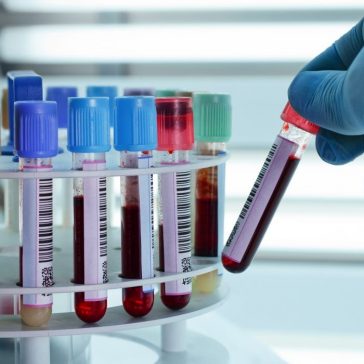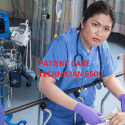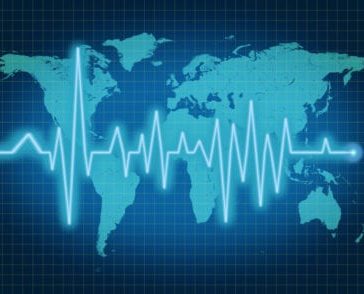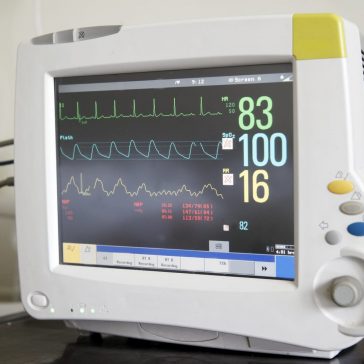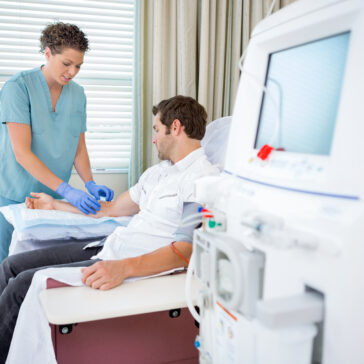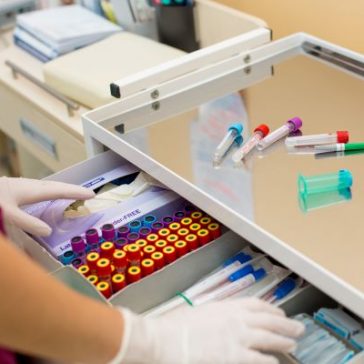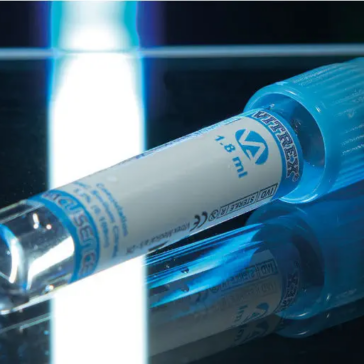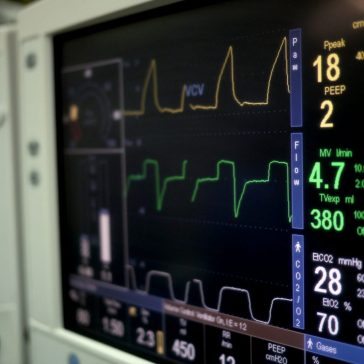In-Person: CCMA Medical Assistant Tier IV
In-Person: CCMA Medical Assistant Tier IV
$1,800.00
Our highest tier Medical Assistant Tier IV class offers 6 certifications in one package: Medical Assistant, ECG Technician, Phlebotomy Technician, IV Technician, Telemetry Technician, Pharmacy Technician, and Medical Billing and Coding. Increase your chances of employment with this comprehensive class offering.
In-Person Medical Assistant Tier 4 Program & Certifications Overview
Take on multiple certifications at once and expand your skills and career horizons. Phlebotomy Career Training offers certification bundles with quality education and skill training at an affordable price. The Medical Assistant Tier 4 offers 6 certifications in one package: Medical Assistant, ECG Technician, Phlebotomy Technician, IV Technician, Telemetry Technician, Pharmacy Technician, and Medical Billing and Coding.
Medical Assistant
Students will learn how to take vital signs, SOAP Note charting, infection control, knowledge of HIPAA and OSHA regulations, assist with minor surgical procedures, perform injections such as intramuscular, intradermal, and subcutaneous, perform electrocardiograms, phlebotomies, drug and pregnancy testing, medical supply management, verbal therapeutic communication, create a safe effective environment, organization, scheduling, professionalism, patient focus, patient confidentiality, bedside manner, medical teamwork, and much more.
Phlebotomy Technician
Students will learn about the principles of proper phlebotomy technique, specimen processing, point of care testing, compassionate patient care, maintenance and use of equipment, record keeping and documentation, basic principles of anatomy and physiology, disease process, therapeutic communication, hazardous materials management, patient assessment, and more.
ECG Technician
Students will be introduced to basic nursing and patient care, HIPAA, resident rights, safety, and emergency procedures, cardiology, electrocardiography, and experiences in the interpretation of the 12 lead ECG using various multimedia. The course helps students to understand, read and interpret Electrocardiogram Lead Tracings.
IV Technician
Students will learn legal aspects related to intravenous insertion and flushing, basic principles of intravenous insertion and flushing, how to use the IVAC Machine and hook up IV fluids while programming drip rate into the machine, Safety hazards and complications related to venipuncture, review of OSHA, safety, and infection control principles and practices, anatomy, and physiology of venipuncture sites, Selection of appropriate venipuncture sites for intravenous therapy, Preparation of equipment for intravenous therapy, Techniques for venipuncture for insertion of a venous access device; includes i. Preparation and immobilization of site ii. Insertion of appropriate devices using both direct and indirect techniques, Techniques of intravenous line establishment, including on-going fluids and saline lock devices, and much more.
Pharmacy Technician
Students will learn the duties and responsibilities of the pharmacy technician and a pharmacist, including the standards of patient confidentiality and ethics governing pharmacy practice, know the pharmaceutical-medical terminology, abbreviations, and symbols commonly used in prescriptions and drug orders, learn the arithmetic calculations required for the usual dosage determinations and much more.
Medical Billing and Coding
Students will learn healthcare law and ethics, medical terminology, anatomy and physiology, and the various software programs commonly used in the medical field. Students will use their books to learn and resource on how to appropriately bill and code in the medical world. Students will prepare for employment in hospitals, physician offices, billing facilities, and other related businesses.
Telemetry Technician
Students will learn principles of rhythm analysis and interpretation of over 30 rhythms, patient care assessment, diagnosis of rhythms and ECG strips, review of the heart anatomy, review of the cardiac cycle, understanding of cardiac muscle contraction, review and analysis of rhythms on Telemetry readings, review of Heart Medications, Rhythm Analysis and Interpretation of Arrhythmias and much more.
Upon course completion, students will need to pass the in-person certification exam to receive their certification for each program except the Medical Billing and Coding, which the certificate will be awarded upon course completion.
Student Experience
The in-person training for each course is designed to work with your schedule. Students will attend classes twice per week for 4 hours each session. They can expect to be in class for seven weeks. Afterwards, students will attend 6 weeks of blood draw days meeting twice a week for 30 minutes sessions. Students can expect to attend the ECG/EKG class and I.V. Training class. Each class is 4 hours. A minimum of 15-20 per week of studying is required. Students have 9 months to complete their training.
Prerequisites
A high school diploma or equivalent GED is recommended to enroll in the In-Person Medical Assistant Tier 4 program. No prior experience is required.
Curriculum (Modules & Exams)
The full program curriculum and training includes over 1440 hours of course content and covers over 85 individual course topics including:
- Compassionate patient care
- Taking vital signs
- SOAP Note charting
- Infection control
- Principles of proper phlebotomy technique
- Specimen processing
- Point of care testing
- Review and analysis of rhythms on ECG readings
- Rhythm Analysis and Interpretation of Arrhythmias
- Record keeping and documentation
- Basic principles of anatomy and physiology
- Principles of proper IV technique
- Selection of appropriate venipuncture sites for intravenous therapy
- Various types of intravenous solutions
- Safety, hazards, and complications related to venipuncture
- Healthcare Law
- HIPAA
- Healthcare services
- Billing and reimbursement
- Diagnostic and procedural coding
- Medication calculations
- Drug purchasing and inventory management
- Biological and physiological reactions to medication
- Technology in the pharmacy
- Disease process
- Therapeutic communication
- Hazardous materials management
- Patient assessment
What’s Included
The course includes the following:
- Medical Assistant Certificate
- Phlebotomy Technician Certificate
- ECG Technician Certificate
- Telemetry Technician Certificate
- IV Technician Certificate
- Pharmacy Technician Certificate
- Medical Billing and Coding Certificate
- Complimentary 9-month voucher for the National Phlebotomy Technician Certification Exam through the NAPTP
- Complimentary 9-month voucher for the National ECG Technician Certification Exam through the National Telemetry Association (NTA)
- Complimentary 9-month voucher for the National Telemetry Technician Certification Exam through the National Telemetry Association (NTA)
- Complimentary 9-month voucher for the National IV Technician Certification Exam through the National IV Association (NIVA)
- Kinn’s The Medical Assistant Book, Hard Cover (Like New)
- NAPTP Study Guide in PDF format (403 pages, full book)
- NTA Study Guide in PDF format (283 pages, full book) with calipers
- Buck’s Medical Billing and Coding Book
- PTCB Study Guide book, New!
- Davis Drug Guide book used
- Access to additional resources and materials
- Access to instructors via phone and email.
- Available tutoring sessions with an appointment
Internship Requirements
Clinical Medical Assistants must complete a clinical of 204 hours of observation and training for their Medical Assistant clinical core requirements to graduate from our program. Each Medical Assistant skill requirement must be supervised and signed off on a clinical competency form that will be provided to the student.
Phlebotomy Technicians must complete a clinical of 30 venipunctures as a part of the Phlebotomy Technician clinical core requirements to graduate from our program. Each draw must be supervised and signed off on a blood draw log and externship forms that will be provided to the student.
ECG Technicians must complete a clinical of 40 hours of live EKGs observation or 10 live EKGs for our EKG clinical core requirements to graduate from our program. Each EKG requirement must be supervised and signed off on a clinical competency form that will be provided to the student. A virtual alternative is available for ECG Technicians who are unable to find an internship in their area.
IV Technicians in the Medical Assistant Tier 4 program are not required to submit a virtual internship video because of the venipuncture requirement under the Phlebotomy Technician section. Venipuncture technique is practiced in both phlebotomy and IV insertion so this skill is covered in the phlebotomy clinical internship.
Telemetry Technicians in the Medical Assistant Tier 4 program are not required to complete a clinical externship. Students can focus on studying and completing their course In-Person.
Medical Billing and Coding students in the Medical Assistant Tier 4 program are not required to complete a clinical externship. Students can focus on studying and completing their course In-Person.
Pharmacy Technicians in the Medical Assistant Tier 4 program are not required to complete a clinical externship. Students can focus on studying and completing their course In-Person.
Did you know that Phlebotomy Career Training has affiliation agreements with St. Joseph and Beaumont just to name a few? Students can take advantage of internships through any of our Michigan-based affiliate hospitals and labs. Students are required to go through the school’s proper channels if they are seeking to do an internship through one of our affiliates.
About Phlebotomy Career Training
Phlebotomy Career Training (PCT) has been educating students and professionals throughout the U.S. with In-Person and in-person programs for over 14 years. PCT is an accredited organization that offers nationally-recognized certification programs.
PCT understands the adult student’s need for quality education, a hands-on learning atmosphere, and a fast-track career path. Students can expect professional educators and quality instruction throughout their course. 95% of our graduates have found employment opportunities in their field!
Phlebotomy Career Training School is nestled in the quaint neatly manicured suburbs of Dearborn, Michigan. It is actually very easy to miss our school if you are driving by. Students can expect a warm friendly atmosphere and an environment that promotes learning. The classroom boasts all the state-of-the-art equipment that students are taught to use.
Our Instructors
Our world-class, qualified instructors have years of teaching and field experience. Our instructors consist of Family Nurse Practitioners, RNs, Doctors, and other qualified medical professionals.
Your instructor will personally reach out to you and will be available to answer any questions throughout the program.
Employment Opportunities
The world of healthcare is a growing career field with great prospects. If you are looking for a career path with ample employment opportunities, competitive pay, benefits, and job satisfaction, Medical Assistant Tier 4 may be a great fit for you. Studies show that the more certifications you have, the higher your chances of being hired can be. Having more certification also showcases additional skill sets that can bring a boost in pay. 95% of our students were able to find employment upon graduation.
FAQs About In-Person Clinical Medical Assistant Tier 4 Program
Do the In-Person courses require an in-person test?
Students will need to pass a Medical Assistant Tier 4 Certification Exam after completing the course to receive their certification which is taken In-Person.
How does the internship/externship work?
As part of the Medical Assistant Tier 4 Certification Program, students are required to complete internships that will allow them to observe and/or practice their skills in each respective course. Students will be given clinical competency forms by their instructor that they will fill out and turn in to receive their certification. You may see this internship referred to as an externship or clinical in various materials; these all refer to the same requirement.
Is Phlebotomy Career Training accredited?
Phlebotomy Career Training is a licensed proprietary school in the state of Michigan and our National Testing Partners which have approved our programs are accredited. This means that the student who graduates and takes their national exam will have accreditation through the National Testing Organization and is eligible to work anywhere in the United States. These organizations include:
- National Healthcareer Association (NHA)
- American Medical Certification Association (AMCA)
- National Telemetry Association (NTA)
- National Association of Phlebotomy Technician Professionals (NAPTP)
- American Medical Technologists (AMT) (Phlebotomy only)
- National I.V. Association (NIVA)
- Pharmacy Technician Certification Board (PTCB)
Phlebotomy Career Training does not offer Credit hours and therefore does not accept financial aid. We are a private for-profit post-secondary school, licensed by the state of Michigan. Phlebotomy Career Training offers clock hours. These clock hours can transfer to some colleges and universities for credit hours.
How do the credit hours work?
Students who complete the full Medical Assistant Tier 4 Program will receive clock hours on their transcripts. Clock hours can be translated into credit hours depending on the college or university. Read more about the credit hours here.
Is Medical Assistant Tier 4 a good stepping stone into other medical careers?
The Medical Assistant Tier 4 program is a great way to get more opportunities for medical professionals once they get their foot in the door. The Medical Assistant Tier 4 training is also a great learning opportunity for those that are looking to apply to medical school or nursing programs. This program offers multiple certifications which can be perfect for those trying to create an impressive resume for their applications to schools and jobs.
Is the Medical Assistant Tier 4 Certification valid nationwide?
Yes, the Medical Assistant National Certification from the NHA, NCCT, or the AMCA is valid in the United States and Canada as is the NTA ECG and Telemetry National, The NAPTP is valid in all states except for California.
Students should always check with their state department for their licensing or certification requirements. Some states may require additional training or examination before becoming qualified to work in that state.





